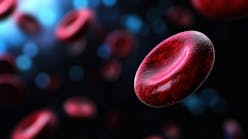Johns Hopkins Kimmel Cancer Center investigators have designed a blood test that accurately detects the presence of advanced breast cancer and also holds promise for precisely monitoring response to cancer treatment. The test, called the cMethDNA assay, accurately detected the presence of cancer DNA in the blood of patients with metastatic breast cancers. The findings were described this week in the journal Cancer Research.
To design the test, the researchers scanned the genomes of primary breast cancer patients, as well as DNA from the blood of metastatic cancer patients. They selected 10 genes specifically altered in breast cancers.
The test detects hypermethyation, a type of chemical tag in one or more of the breast cancer-specific genes present in tumor DNA and detectable in blood samples. Hypermethylation often silences genes that keep runaway cell growth in check, and its appearance in the DNA of breast cancer-related genes shed into the blood indicates that cancer has returned or spread.
In one set of experiments, the researchers tested the assay's ability to detect methylated tumor DNA in 52 blood samples, 24 from patients with recurrent stage IV breast cancer and 28 from women without breast cancer; and again in blood samples from 60 individuals, 33 of whom had breast cancer. In each case, the blood test was up to 95% accurate in distinguishing patients with metastatic breast cancer from healthy patients.
The investigators also studied the assay's potential to monitor response to chemotherapy. The test detected a significant decrease in DNA methylation in patients with stable disease or in those who responded to treatment; this decrease was not found in patients whose disease progressed or who did not respond to treatment. Read the study abstract.
Read more





